Highlights
- Understanding Dog Allergies: Identifying food-related allergies in dogs and their symptoms.
- The Importance of Dog Nutrition: How balanced nutrition can prevent allergic reactions.
- Smart Food Choices: Tips on selecting hypoallergenic and high-quality ingredients for your dog’s diet.

As a pet owner, one of the most important things you can do is make sure your dog eats well. This helps support their health and happiness. Many dog owners worry about food allergies. These allergies can cause discomfort and long-term health problems for your pet.
Fortunately, making smart food choices can help you avoid these allergic reactions and ensure that your dog thrives on a balanced, nutritious diet.
In this post, we will look at how good dog nutrition helps prevent allergies. We will also discuss how you can choose the right food for your dog.
Understanding Dog Allergies
Just like humans, dogs can develop allergies to certain foods. These allergies often manifest through symptoms like itching, digestive problems, and ear infections. If left unchecked, allergic reactions can lead to more serious health problems over time.
The most common culprits behind dog food allergies are proteins like beef, chicken, and dairy. Some dogs may also react to grains or additives in commercial pet food. If you think your dog has an allergy, it’s important to talk to your veterinarian. They can help find the cause and decide the best treatment.
The Importance of Dog Nutrition
Dog nutrition is about more than just feeding your dog any food that meets basic dietary needs. A well-balanced diet plays a critical role in maintaining their overall health and preventing allergies. By using high-quality ingredients and knowing your dog’s specific nutritional needs, you can make a meal plan. This plan can lower the risk of allergic reactions and help support their immune system.
Good nutrition helps:
- Boost the immune system: A healthy diet helps your dog’s immune system. This makes them less likely to have food allergies and other health problems.
- Promote healthy digestion: Proper nutrition supports gut health, which is vital for processing food without triggering allergic reactions.
- Maintain skin and coat health: Dogs prone to allergies often have skin issues. A nutrient-rich diet can keep their skin healthy, reducing itching and irritation.
Smart Food Choices to Avoid Allergies
When it comes to preventing allergies, the best approach is to carefully select what goes into your dog’s bowl. Here are some smart food choices you can make to avoid allergic reactions and promote good health:
- Choose Hypoallergenic Foods: If your dog has a known allergy, switching to hypoallergenic dog food is a wise option. These foods are made with limited ingredients, avoiding common allergens like beef, chicken, or grains. Instead, they often use novel proteins such as lamb, duck, or fish, which are less likely to cause reactions.
- Opt for Grain-Free Diets: Some dogs are sensitive to grains like wheat, corn, or soy. Switching to a grain-free diet can help reduce digestive issues and inflammation associated with allergies. Look for high-quality, grain-free foods that provide adequate protein and fiber from alternative sources.
- Read Labels Carefully: Many commercial dog foods contain additives, preservatives, and artificial flavors, which can trigger allergic reactions. Always read the labels and choose products that prioritize whole, natural ingredients. Avoid foods with fillers or ingredients that you can’t easily identify.
- Incorporate Fresh Ingredients: Incorporating fresh, whole foods into your dog’s diet can significantly reduce their exposure to allergens. Fresh vegetables like sweet potatoes, carrots, and leafy greens are rich in nutrients and easy to digest. If you are thinking about a homemade diet, talk to your veterinarian. They can help make sure your dog gets all the nutrients it needs.
- Experiment with Limited-Ingredient Diets: A limited-ingredient diet (LID) uses fewer ingredients, making it easier to identify and eliminate potential allergens. By simplifying your dog’s food, you can watch how they respond to certain ingredients. This lets you adjust their diet as needed.
Working with a Dog Nutrition Expert
It can be challenging to navigate the world of dog food, especially when dealing with allergies. Working with a veterinarian or a dog nutrition expert can help you design a customized diet that meets your dog’s specific needs. A professional can help you choose the right hypoallergenic or limited-ingredient diet for your dog. They can also track your dog’s progress.
To avoid allergies, make smart food choices for your dog. Understand your dog’s unique nutritional needs. Be aware of potential allergens. You can help your dog avoid food allergies. Use high-quality, hypoallergenic ingredients. Talk to a vet if needed. This will help your dog live a healthier and happier life.
A balanced diet is key to your dog’s good health. Take time to make smart choices about their food.

